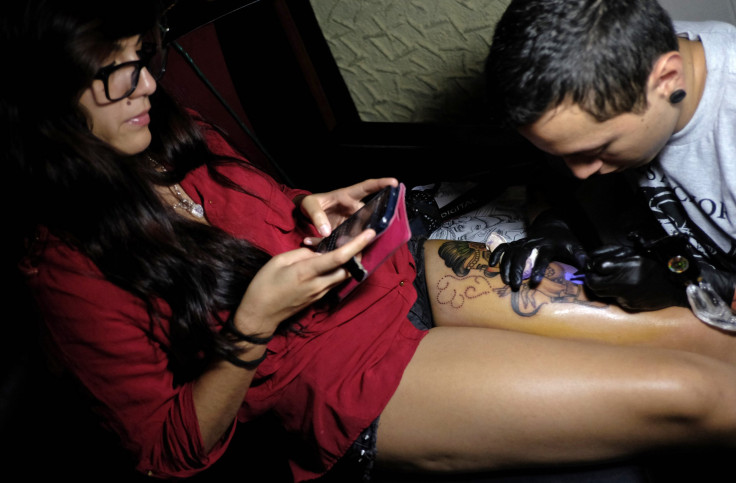Tattoo Infections From Contaminated Ink Just One Of Many Surprising Sources Of Infection

In the U.S., one out of five adults boasts at least one tattoo. While a lasting tribute may be a beautiful idea, it must be done safely lest it turn into a distinctly un-beautiful experience. Most people are wary of unsterilized needles, but a lesser known danger may lie in wait for the uninitiated: the Food and Drug Administration (FDA) has discovered bacterial contamination in unopened bottles of ink in tattoo kits marketed by White and Blue Lion, Inc. Unusual as this may seem, ink is just one of many lesser known health threats, including baby bottles and mist sprayers in grocery store produce departments, which may cause surprise infections.
Get It Done Right
According to the FDA, injecting contaminated ink into the skin — or using improperly sterilized needles still tainted by this ink — may result in a nasty infection that, if untreated, could spread through your bloodstream (sepsis). While White and Blue Lion recalled its products last month, consumers and professional artists may still be using contaminated kits and inks. The warning signs of a possibly dangerous infection would be: redness, swelling, blemishes, excessive pain, or a "weeping" wound. These symptoms could lead to fever and eventually sepsis, requiring treatment with antibiotics, hospitalization, or even surgery. For those who fortunately experience only a contained, localized infection, the area may be permanently scarred even after healing.
If you’re a DIY artist, do not buy tattoo inks and kits that have no brand name, carry a dragon logo, or are missing the name and place of business of the manufacturer or distributor. Inks marked with “Lotch” [sic] and Batch numbers, and “Date produced” and “Best if used by” dates are also suspect, according to the FDA. According to Dr. Linda Katz, director of FDA’s Office of Cosmetics and Colors, “If you’re buying tattoo inks or getting a tattoo from a professional tattoo artist, you should first examine the products to determine whether the inks or kits meet the above descriptions.”
If you’re looking for a tattoo shop — or going to the place recommended by a friend — you need to ask a few simple questions: Does the shop sterilize their equipment? Does the artist wear gloves? Are inks and ointments portioned out for individual use? Did the artist open a sterile needle in front of you? As most everyone understands, unsterile needles can transmit not only skin infections but also viruses, such as HIV and hepatitis.
Weird Sources of Infection
Now that we all understand the potential pitfalls of contaminated ink, it is important to remember other lesser known infection sources. Cat feces, for instance, and therefore cat litter may bring you into contact with a parasite causing Toxoplasmosis, a disease which causes symptoms similar to a mild form of bacterial meningitis. Pregnant women can transmit this rare disease to their unborn babies or, becoming infected themselves, can suffer a miscarriage. Because cats are hosts for the parasite, women are often advised to avoid changing the litter box while pregnant.
Another potential cause of infection? For babies, drinking from a bottle, especially while lying down, may lead to a bacterial or viral middle ear infection, which, if chronic, could cause cerebral abscess. This condition occurs when infected brain cells, white blood cells, both live and dead bacteria, and fungi collect in an area of the brain. Next, tissue forms around this area and creates a mass, which puts pressure on the brain.
Legionnaires' disease is a severe form of pneumonia caused by a bacterium known as legionella. The very same legionella may also cause Pontiac fever, a milder illness resembling the flu. Where does this this bacterium hide, waiting to infect the unsuspecting? In air conditioners, hot tubs, water fountains, and mist sprayers in grocery store produce departments. Ultimately, bacteria and viruses lurk everywhere. So you have a choice. You can either walk around frightened 24/7 or you can simply try to stay as healthy as possible through a proper diet, exercise, and sanitation.



























